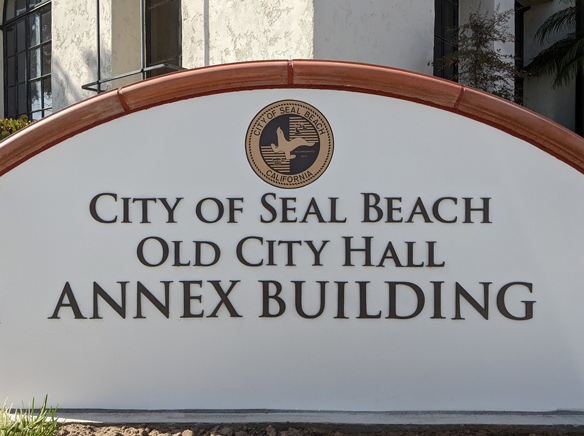State law requires communities to reduce edible food trash (“organic waste”) by 20% by the year 2025. The state law is SB 1383.
On Monday, June 10, the council approved a contract with HF&H Consultants, LLC, to help negotiate the customer rates between the city and Republic Services.
Approving the professional services agreement also required the council to approve a budget amendment of $108,074.
The contract would be for a maximum of $115,000, according to the staff report prepared by Management Analyst Lauren Barich and City Manager’s Office intern Carlin Thompson.
The contract also provides other services.
This was a Consent Calendar item.
Consent items are approved collectively, without discussion, unless pulled for individual consideration. Nothing was pulled from this week’s Consent Calendar.
In an email to city staff, District Two Council Member Tom Moore asked several questions.
“What happens if we say ‘no’ to this state mandate?”
An unsigned answer from staff said: “California Senate Bill 1383 (SB 1383) outlines regulations for reducing organic waste disposal in landfills. While there’s no single, definitive penalty for non-compliance, there can be consequences for cities that fall short of the established goals.”
Some of those goals, according to staff, are financial penalties that could be imposed by the CalRecycle. “The City has so far not been cited but further delays could mean that we receive a notice of non-compliance.”
Other consequences that staff listed included losing funding and lawsuits.
Moore: “Why do we need a consultant to negotiate this with Republic Services?”
Staff: “The Republic Services contract is a complex legal document with significant financial implications for the City. Negotiating waste management agreements involve intricate details beyond waste collection services.”
One of the complications that staff mentioned was Senate Bill 1383 that requires the recovery of food waste. “HF&H consultants stay current on evolving waste management regulations like SB 1383,” staff wrote.
Background
“Since 2022, some food service businesses must donate edible food to food recovery organizations with others starting in 2024. This will help feed the almost 1 in 4 Californians without enough to eat,” according to the CalRecycle website.
“California has a 2025 goal to redirect to people in need 20% of edible food currently thrown away,” according to the CalRecycle website.
The state mandate won’t just effect city governments. Individuals and businesses must separate food and “green” waste from trash and recycleables.Which brings us to the Seal Beach consulting contract.
“HF&H Consultants, LLC proposed a scope of services that ensures an SB 1383 compliant agreement with Republic Services, and assistance with implementation of the City’s program,” according to the Barich-Thompson report.
“The implementation assistance will include legislative research, compliance tracking/reporting, and providing general solid waste, recycling, and organics liaison assistance,” Barich and Thompson wrote.
“Local jurisdictions, including the City of Seal Beach, must implement SB 1383,
which will require extensive coordination with multiple stakeholders. The requirements include:
“1. Providing organic collection services to all residents and businesses.
“2. Establishing a food recovery program to recover edible food that hasn’t gone to waste.
“3. Conducting education and outreach efforts to all affected parties including residents, city departments, waste generators, businesses, haulers, solid waste facilities, local food banks, and other edible food recovery organizations.
“4. Evaluating the City’s readiness to implement SB 1383 and conducting capacity planning related to collection and recycling.
“5. Procuring recycled organic waste products.
“6. Maintaining accurate records and submitting reports to the State.
“7. Ensuring compliance with SB 1383 through enforcement,” Barich and Thompson wrote.




